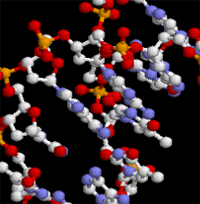Life Sciences

- © UNESCO Paris
The ongoing explosion in knowledge in the life sciences continues to offer vast opportunities for meeting the challenges of hunger, food security, disease, environmental degradation and climate change. UNESCO is particularly concerned that advances in knowledge and its applications in life sciences should be of benefit to all. Developing countries should have a critical mass of well-trained scientists who can advise governments about priorities for national research and about use of the technologies that arise from life sciences research.
Under the umbrella of the International Basic Sciences Programme, UNESCO’s activities in the life sciences focus on human capacity building with a view to promoting international scientific co-operation and to bridging the scientific and technological differences existing between developed and developing countries. The major aim is the development of endogenous national and regional research capacities in the biological sciences and biotechnology in keeping with rapid scientific advances. These objectives are achieved in co-operation with scientific non-governmental and intergovernmental organizations, and with networks of scientists and specialized centres of excellence, for organizing of training activities, workshops and research projects on a collaborative basis.
Cell and molecular biology, neurosciences, microbiology and biotechnology are the current foci for UNESCO’s capacity building activities in life sciences for the biennium 2008-2009. Training activities in partnership with the International Union of Biochemistry and Molecular Biology, the International Centre for Genetic Engineering and Biotechnology (ICGEB-Cape Town), the International Brain Research Organization (IBRO) and other partners are currently being implemented. In addition, UNESCO contributes technical advice and convenes and participates in international and regional meetings and fora that address issues of policy related to the life sciences and their applications. Current events and activities are highlighted in the News section.
For more information please contact: Ms Julia Hasler ou Ms Lucy Hoareau, Programme Specialists, SC/BES, UNESCO HQ



